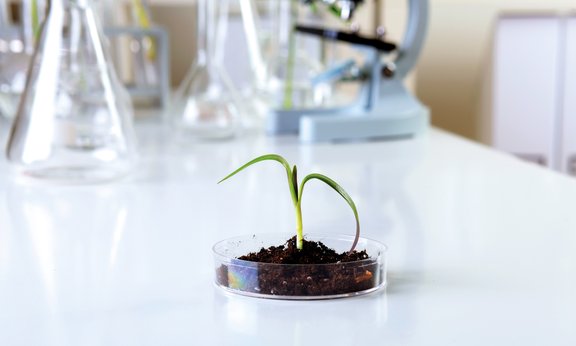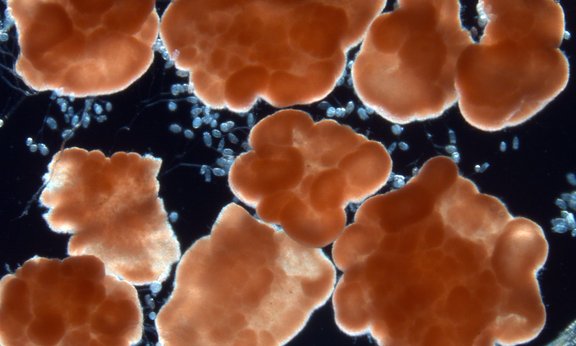Master’s Programme Zoology
Are you interested in regeneration and stem cells, would you like to explore physiological relationships or understand how life functions at the organismic and cellular level?
The students of the Master’s Degree Programme in Zoology study zoological relationships and learn integrative and critical thinking in the field of science and the animate world.
The focus is put on understanding life from the organism to the molecular level as well as structure-function relationships. Technically the students focus on modern light and electron microscopy. Students may specialise in the fields of evolution, developmental biology, physiology, chonobiology, environmental stress and bionics.
Study Code
UC 066 831
FAQ
Graduates possess highly specialized knowledge in the fields of organismic zoology, evolution and developmental biology, the physiology of animals, and ecophysiology and population biology. They are able to demonstrate their abilities at the intersections of these fields through their capacity to formulate and susbtantiate arguments scientifically and to find innovative solutions to problems.
The goal of the Master's Programme Zoology at the University of Innsbruck is to train students in modern methods of zoological research and their application in the research areas offered at the faculty.
Key areas include the development and cell physiology of animals as well as their relationship to the environment, and ecotoxicology and population biology. The evolution of animals is treated in interdisciplinary fashion. Wildlife studies are conducted using various on-site model organisms from current research and using field studies.
In general terms, the programme stresses the acquisition of an understanding of biological connections, independent and integrative thinking and flexibility. A central part of the programme is instruction in independent scientific work and in publishing scientific data. The master's programme also prepares students for doctoral studies.
Career oppoortunities may include: scientific activities in companies, scientific activities in public and administrative institutions, basic research in biomedicine, zoologically-oriented research and teaching in all areas of biology, activities as a certified expert, further activities related to other disciplines (e.g. journalism) in combination with additional qualifications.
Graduates tracking: Shows which occupational fields students enter after graduation
Faculty of Biology Examination Office Information for students with disabilities
Curriculum
From the field
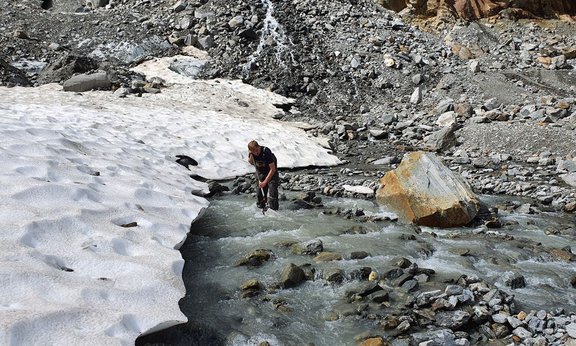
Am Gletscher: Mücken geben Einblick ins Ökosystem
Eingebettet zwischen schroffen Felswänden sind die Eismassen von Gletschern ein höchst unwirtlicher Lebensraum. Dennoch tummeln sich in ihrem Schmelzwasser Mückenlarven, genauer: die Vorstufen der Zuckmücken. Ein Forschungsprojekt in den Ötztaler Alpen macht sich das Vorkommen der Tierchen zunutze, um Rückschlüsse auf das Ökosystem und dessen Gefährdung durch den Klimawandel zu ziehen.
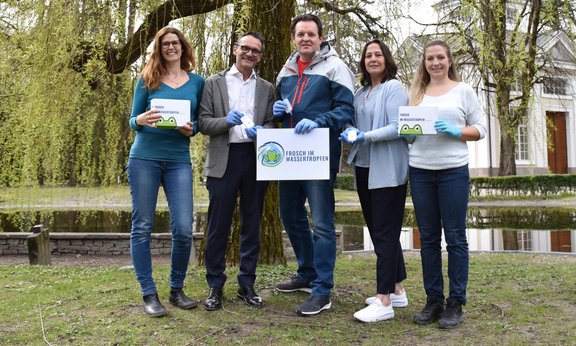
Frosch im Wassertropfen: Wissenschaft zum Mitmachen
Noch bis Ende März können sich interessierte Bürgerinnen und Bürger zur Teilnahme am Forschungsprojekt „Frosch im Wassertropfen“ anmelden. Mittels Umwelt-DNA werden dabei österreichweit die in Gewässern vorkommenden Amphibienarten erhoben. Das Land Tirol unterstützt das Projekt mit über 25.000 Euro.
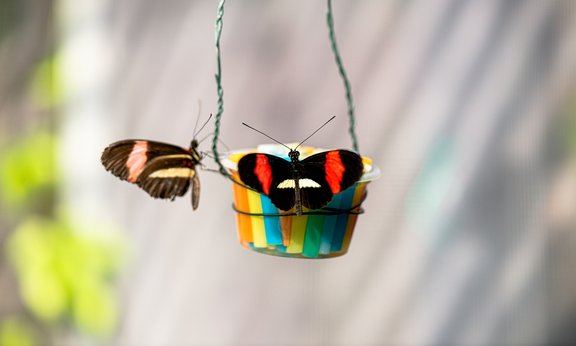
Schmetterling-Gen steuert Partnerpräferenz
Ein bei der Kreuzung zweier Schmetterlingsarten weitergegebenes Gen ist verantwortlich dafür, dass Männchen beider Arten Weibchen mit roten Mustern bevorzugen. Forschende um START-Preisträger Markus Möst zeigen in einer aktuellen Studie in Science, dass Hybridisierung bei der Evolution von Verhaltensweisen eine wichtige Rolle spielen kann.
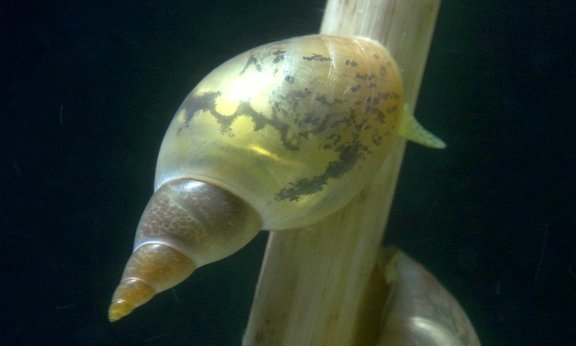
Profitieren oder Verlieren bei Hitzewellen
Steigende Temperaturen infolge des Klimawandels bringen für viele Organismen große Einschränkungen, für andere können sie auch positive Effekte haben. Wer profitiert und wer verliert hängt wahrscheinlich von Umweltfaktoren ab. Nun hat ein Team um den Ökologen Otto Seppälä von der Universität Innsbruck am Mondsee experimentell beobachtet, wie Süßwasserschnecken Hitzewellen bei guten Futterbedingungen überstehen und neben den erlittenen negativen Folgen auch so manchen Vorteil daraus ziehen können.
Related studies

Atmospheric Sciences (Master)
Master of Science

Chemical Engineering (Master)
Diplom-Ingenieur*in

